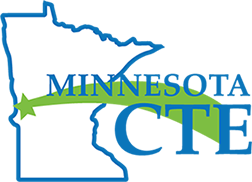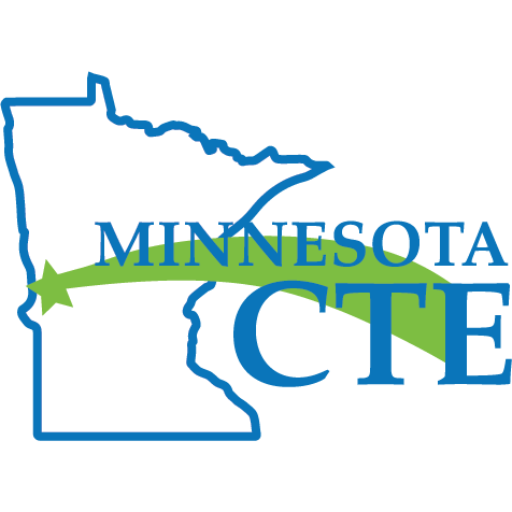Ag, Food, and Natural Resources (AFNR) Education
Cultivating Resources

Background
Agricultural, Food, and Natural Resources (AFNR) Education prepares individuals for employment in a vast range of science, technology, and business occupations found within the context of food, fiber, and natural resources. AFNR careers include the production, processing, marketing, distribution, financing, and development of agricultural commodities and resources including food, fiber, wood products, natural resources, horticulture, and other plant and animal products or resources.
AFNR is one of the three original Career and Technical Education (CTE) fields, created in 1917 by the Smith-Hughes legislation. AFNR has evolved in the more than 100 years since its inception as farming classes only for boys to now supporting good paying, highly skilled, and sought after careers for all in food science, biotechnology, agribusiness, and agricultural manufacturing. The student organization for AFNR, FFA, was formed in 1928 originally as Future Farmers of America. As of 2024, more than 211 districts offer AFNR programs in Minnesota, including 334 teachers and 42,970 students grades 5-12.
AFNR comprises the Agriculture, Food, & Natural Resources career field on the federal Career Wheel. AFNR includes two clusters: (a) Agriculture and (b) Energy & Natural Resources.
Licenses for this career field include:
– Broad-based license for the entire AFNR field: Agriculture broad-based-010100.
– Careers license for the Agriculture cluster: does not exist yet in Minnesota.
– Careers license for the Energy & Natural Resources cluster: does not exist yet in Minnesota.
– Pathway license for the Conservation & Land Management pathway: Park Services career pathways-010700.
– Cross-cutting career-license for the Digital Technology cluster: Communication Technology careers-300000.
– Cross-cutting careers license for the Management & Entrepreneurship cluster: does not exist yet in Minnesota.
– Cross-cutting career-license for the Marketing & Sales cluster: does not exist yet in Minnesota.
Minnesota is Focused on Cultivating Resources
Minnesota’s leading food products sector sprouted in the state because the industry of agriculture is rooted in our history. From farm to table, Minnesota is a food production and agricultural powerhouse. Minnesota is also committed to developing, building, and promoting sustainable solutions across a swath of industries—including water, solar, wind, and other clean energy technologies. Our state has long been a leader in biofuels, and carbon emissions from Minnesota’s power sector have declined 40 percent in the last ten years as our state transitions to a cleaner energy future.
- 4th in the Nation for Total Agricultural Exports (USDA, 2024)
- 1st in Sugar Beets, Oats, Wild Rice, Red Kidney Beans (MDA, 2023)
- 1st in Turkeys Raised (MDA, 2023)
- 2nd in Hogs (MDA, 2023)
- 3rd in Soybeans, Dry Beans, Sunflower (MDA, 2023)
- 6th in Red Meat, Cheese, Honey (MDA, 2023)
- 1st in the Region and 5th in the Nation in Sustainability (DEED, 2024)
- 7th Most Environmentally Friendly State (WalletHub, 2024)
Minnesota AFNR Companies

Three Components of Ag, Food, and Natural Resources (AFNR) Education

AFNR Courses and Labs
Academic, Rigorous Instruction
Ag, Food, & Natural Resources (AFNR) prepares students for high wage, high skill, and in demand jobs and careers in food, fiber, and natural resources from animals and plants to business and power systems. AFNR integrates science, math, economics, and even art, ideally while meeting high school graduation requirements and earning college credit and industry certifications. AFNR is contextual, combining classroom and laboratory instruction, often making heavy use of project-based learning.
Essential elements include: career awareness, exploration, and preparation; programs of study based on industry; and a balance of classroom and laboratory instruction, which uses technology.

AFNR Work-Based Learning
Technical, Relevant Experience
Students learn best by doing. A work-based learning (WBL) project is an extension of the classroom, where students develop specific technical and career knowledge that prepares them for their future. AFNR deeply integrates WBL using Supervised Agricultural Experience (SAE) projects where students explore careers of interest, followed by relevant experiences with internships, entrepreneurship, research, service learning, and School-Based Enterprises at the school such as greenhouses and school farms.
Essential elements include: work-based learning opportunities guided by training agreements and training plans; safety instruction and policies.

Minnesota FFA
Affective, Relationships/Leadership
FFA is a federally charted, integral component of AFNR and is it’s Career and Technical Student Organization (CTSO). To become an FFA member, students must enroll in at least one AFNR course per year. Minnesota FFA makes a positive difference in the lives of students by developing their potential for premier leadership, personal growth, and career success through Agricultural Education. State membership as of 2024 was more than 16,000 secondary members in 210 chapters.
Essential elements include: leadership development opportunities through student organizations or other means.
Career Clusters within AFNR
Courses in Ag, Food, & Natural Resources
AFNR State Leadership and Professional Organizations



AFNR Teacher Preparation and Mentoring

Advanced mentoring and induction for those who have recently completed a teacher preparation program (Tier 3) or those who have completed CTE-TIP (Tier 2 or Tier 3) and need license-specific support to build a program, design and adopt curriculum, and enhance their teaching and pedagogy.





















